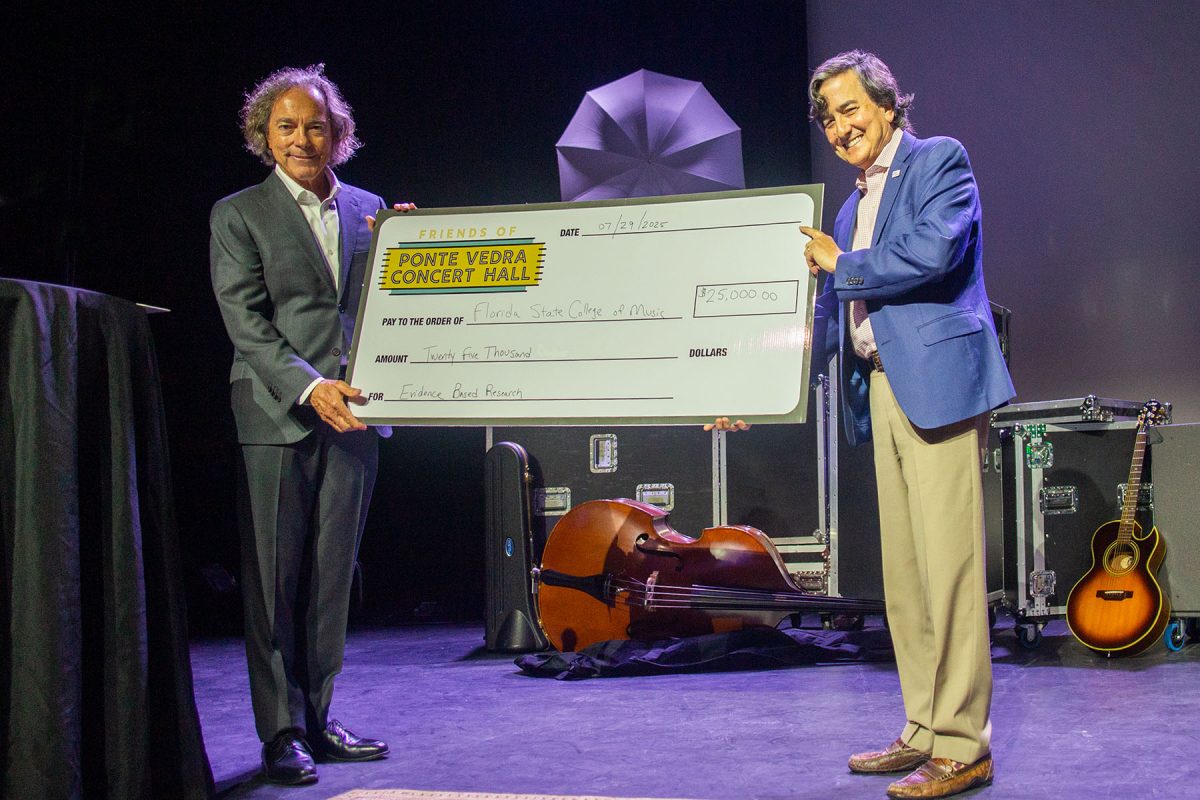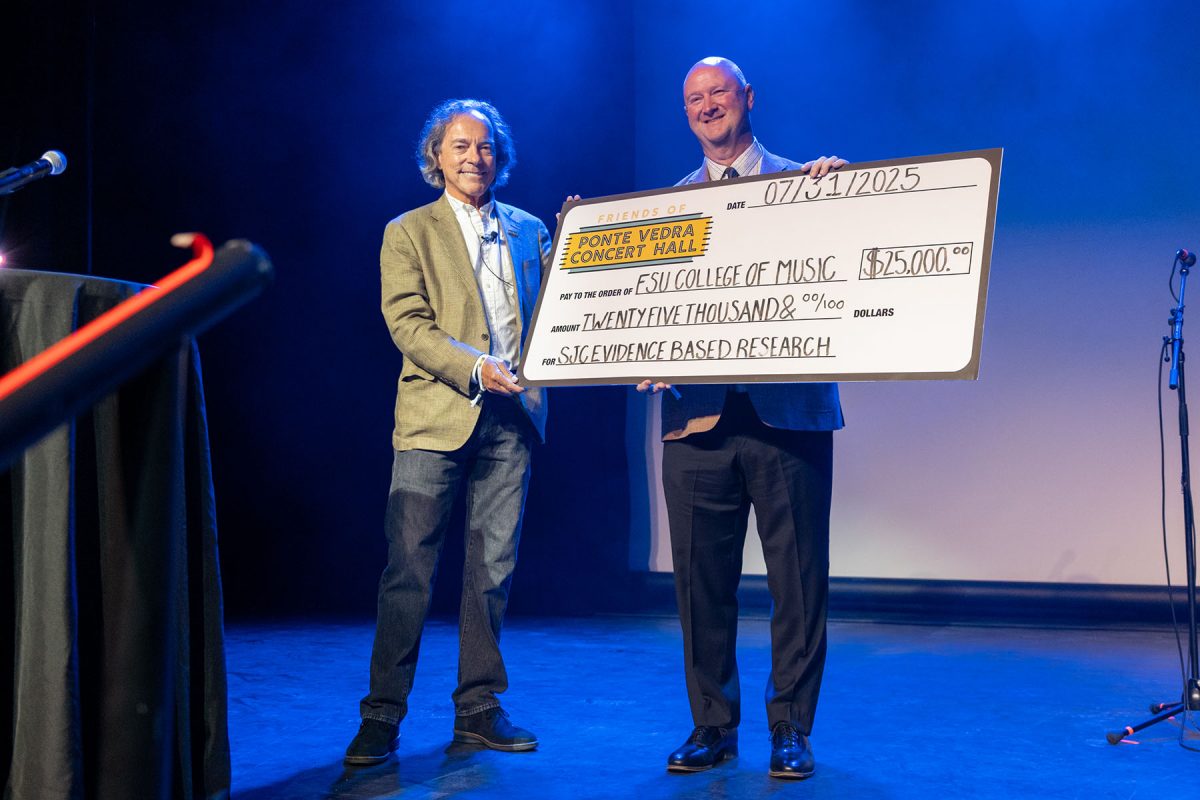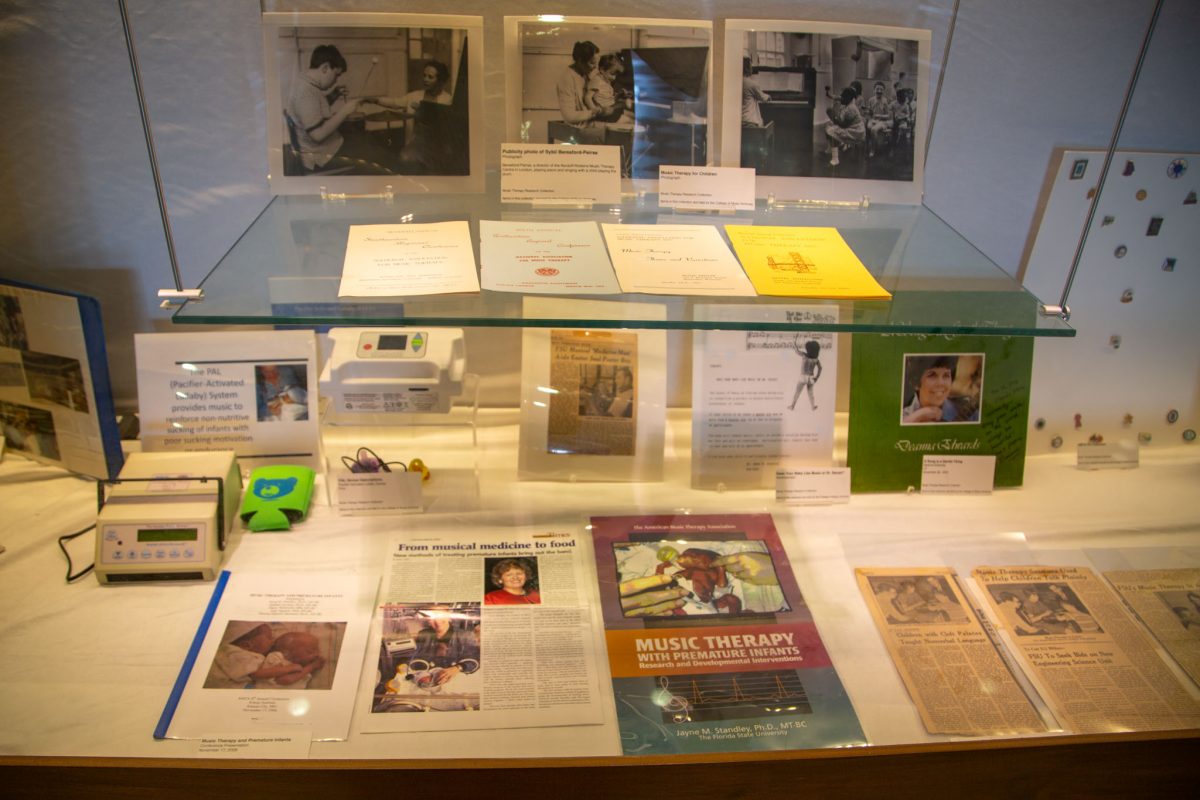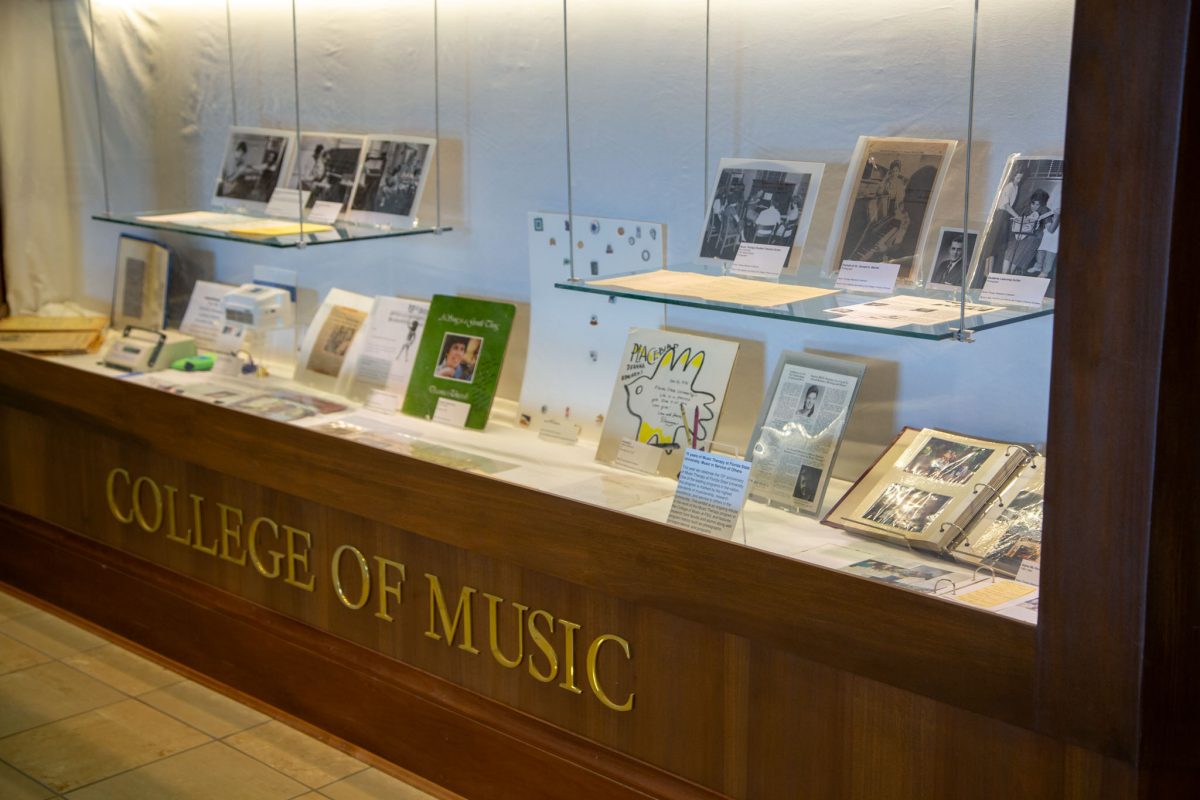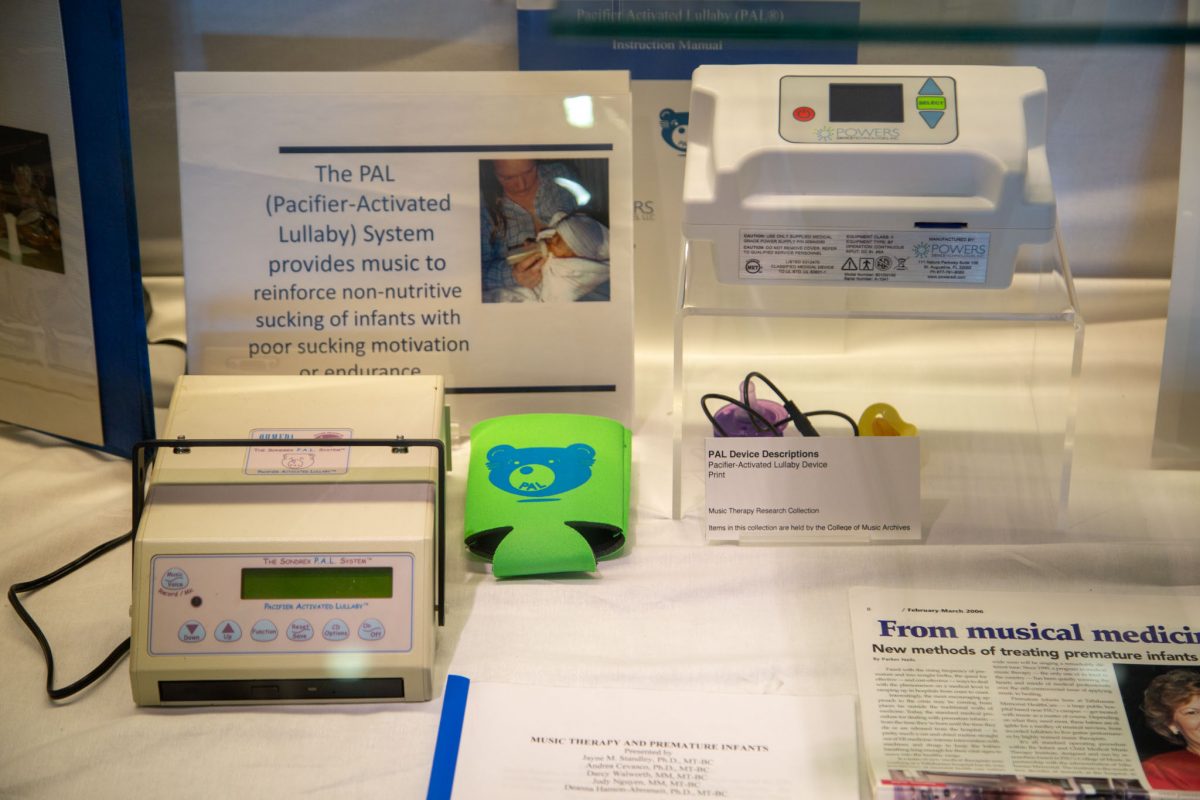
Florida State University’s College of Music is celebrating the 70th anniversary of its nationally recognized Music Therapy Program, one of the earliest established in the United States. Since its founding in 1954, more than 1,000 students have graduated from the program, which continues to lead the field in clinical practice, research and community engagement.
“For 70 years, the College of Music has had a positive impact in the community through its music therapy program,” said Todd Queen, dean of the College of Music. “Trained by renowned professors, our students are bringing healing and therapeutic services to community members through the power of music.”
As part of the anniversary, the college launched a series of initiatives to honor its legacy. Among them was a pilot outreach program in St. Johns County, funded by the Friends of Ponte Vedra Concert Hall, which brought music therapy-informed experiences to children ages 5 to 8.
“By harnessing the power of music, we are not only advancing research and clinical excellence but also uplifting the lives of young people and families across our campus and the greater community,” said FSU Provost and Executive Vice President for Academic Affairs James Clark. “The transformative impact of music therapy is evident every day from our students’ hands-on work with kids and the research that documents the positive effects of their work.”
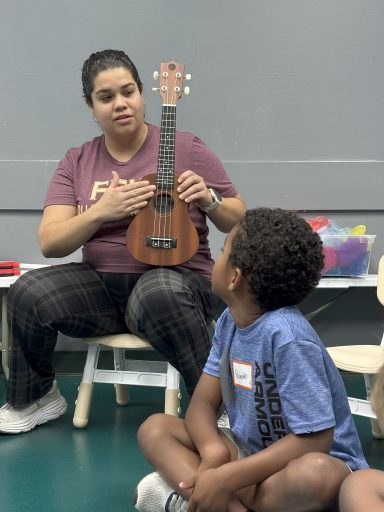
Through this five-week program, children who initially expressed feelings of isolation and bullying progressed to singing and playing instruments together in harmony. Led by board-certified music therapists from FSU, the initiative was grounded in evidence-based research and aimed to support emotional and developmental well-being.
“We are using research-based interventions that we know work for helping kids express themselves, practice social skills and develop moral and emotional skills,” said Adriana Lizardi-Vázquez, FSU doctoral music therapy student. “Each child takes their turn, each has space to be heard, to listen and to repeat. That validation in a group setting makes a very important impact.”
The anniversary also serves as a moment to appreciate the program’s broader contributions to the field and the university.
“This milestone is a celebration of our history, a reflection of the lives we’ve touched and the future we’re building,” said Lori Gooding, professor and coordinator of music therapy. “Music therapy is about connection, healing and transformation, and our students and faculty live that mission every day.”
Gooding emphasized that the St. Johns County initiative is just one example of the program’s community impact.
“This project gave children a safe space to express themselves and build relationships through music,” Gooding said. “It’s a beautiful example of how our work extends beyond the classroom and into the heart of the community.”
As part of the college’s undergraduate, master’s and doctoral degrees, the program offers students hands-on clinical training, including partnerships with Tallahassee Memorial HealthCare. Students complete a six-month internship and are eligible to sit for board certification upon graduation.
“Our students work in hospitals, schools, shelters and even neonatal units,” Gooding said. “They’re trained to use music to restore, improve and maintain functioning in a wide range of settings, from pain management to stroke recovery.”
Research has shown that music therapy can significantly improve outcomes for premature infants, a breakthrough led by Jayne Standley, FSU’s professor emerita of music therapy.
Standley invented the Pacifier Activated Lullaby (PAL®), a device that uses musical reinforcement to teach premature babies how to suck, a critical skill for feeding. When a baby successfully sucks on the pacifier, the device plays 10 seconds of music, encouraging repetition and strengthening oral-motor coordination.
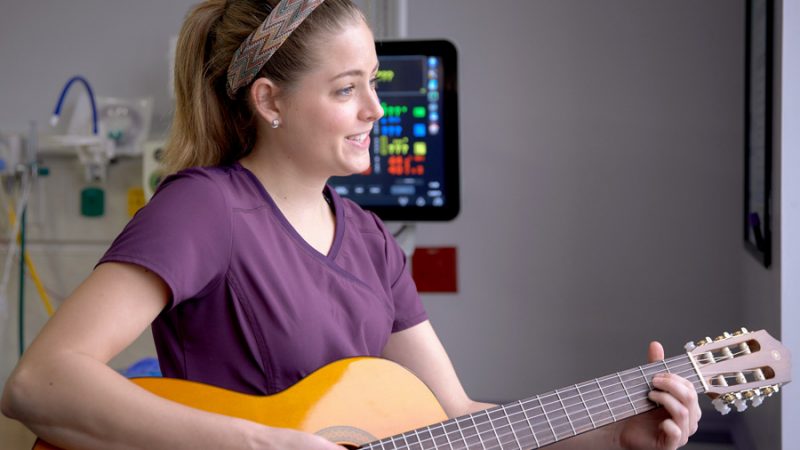
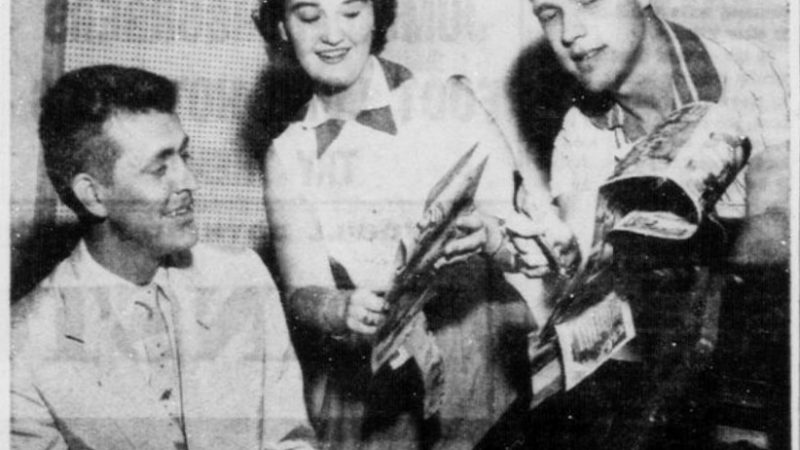
Approved by the FDA as a medical feeding device, PAL is now used in neonatal intensive care units across the country and has helped babies go home an average of five days sooner, saving families and hospitals thousands of dollars. It’s considered one of the most impactful innovations in music therapy worldwide, blending science, compassion and melody to support the tiniest patients.
The music therapy program is also contributing to the college’s broader celebration of its 125th anniversary, which includes the launch of a Bachelor of Arts in Community Music, the first of its kind nationally. This new degree prepares students to use music to enrich lives in retirement communities, schools and underserved populations.

“Whether through high-level performance, health care partnerships or community engagement, our goal is to make music a central part of people’s lives,” said Gregory Jones, associate dean of the College of Music. “The college has a rich history of sharing the power of music to unite, heal and transform. Today’s students want to be engaged in work that enriches their community, and we are excited to be a national leader in using research to develop innovative pathways for them to do just that.”
The anniversary also coincides with the development of a dedicated College of Music archives, led by the college’s archivist Arianne Johnson Quinn, who has started to collect and digitize materials that document the program’s evolution, including faculty research, student contributions and alumni memories.
“We’re building a living archive that reflects the depth and diversity of our program,” Quinn said. “From oral histories to photographs and manuscripts, we’re preserving the story of music therapy at FSU for future generations.”
A rotating exhibit in Ruby Diamond Concert Hall and a growing digital library are among the archival highlights. The college is also inviting alumni and supporters to contribute photos, stories and memorabilia to enrich the collection.
“Music, at its core, is all about connecting to people,” Jones said. “In my view, we are just getting started on our journey exploring the way music impacts us mentally, physically and socially.”
For more information, visit music.fsu.edu.




